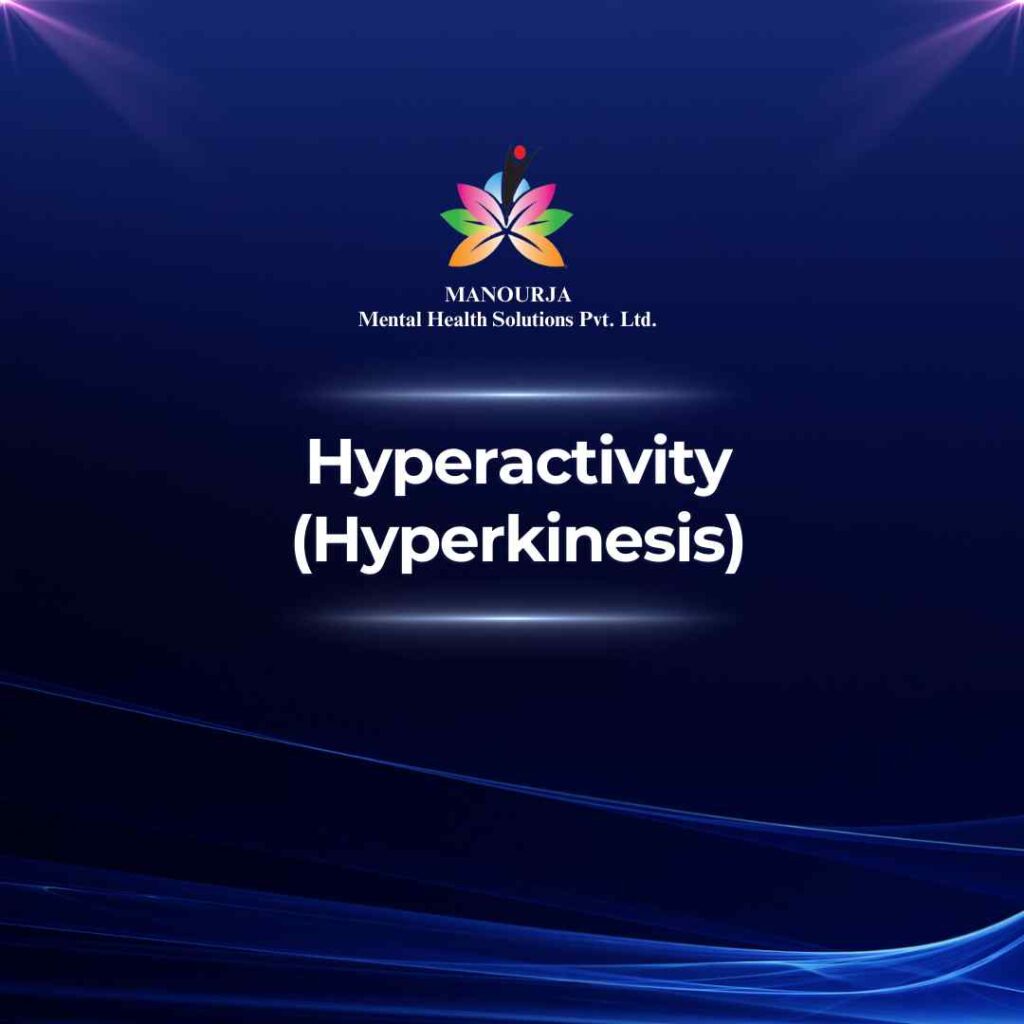Hyperactivity (Hyperkinesis) in Mental Health

Hyperactivity, also known as hyperkinesis, refers to excessive physical movement, restlessness, and difficulty in remaining still. It is a symptom often associated with various mental health disorders, particularly those affecting attention and impulse control.
Signs and Symptoms in Mental Illness
Hyperactivity is commonly observed in several mental health conditions:
- Attention-Deficit/Hyperactivity Disorder (ADHD): Hyperactivity is a core symptom of ADHD, a neurodevelopmental disorder characterized by persistent patterns of inattention, impulsivity, and hyperactivity. Individuals with ADHD may exhibit behaviors such as fidgeting, tapping, excessive talking, and difficulty engaging in quiet activities.
- Mania: During manic episodes of bipolar disorder, individuals may experience hyperactivity as part of a broader cluster of symptoms. Manic episodes are characterized by elevated mood, increased energy levels, reduced need for sleep, impulsivity, and heightened goal-directed activity.
- Anxiety Disorders: While typically associated with restlessness, anxiety disorders can also present with symptoms of hyperactivity, especially in children and adolescents. Hyperactivity in anxiety disorders may manifest as an inability to sit still, pacing, or constantly seeking distractions.
- Substance Use Disorders: Certain substances, particularly stimulants like amphetamines or cocaine, can induce symptoms of hyperactivity as part of their pharmacological effects. This can contribute to the development of substance use disorders or exacerbate existing hyperactivity symptoms in individuals predisposed to ADHD.
Treatment and Management
Effective management of hyperactivity involves addressing the underlying mental health condition through various approaches:
- Medication: Stimulant medications, such as methylphenidate or amphetamines, are commonly prescribed to manage hyperactive symptoms in conditions like ADHD. Non-stimulant medications and mood stabilizers may be used in cases of bipolar disorder or other related conditions.
- Behavioral Therapy: Behavioral interventions, including cognitive-behavioral therapy (CBT), behavioral modification techniques, and social skills training, can help individuals develop coping strategies, improve self-control, and manage hyperactive behaviors effectively.
- Environmental Adjustments: Structured routines, regular physical activity, minimizing distractions, and creating supportive environments at home and school can significantly aid in managing hyperactivity and promoting overall well-being.
Conclusion Hyperactivity, or hyperkinesis, is characterized by excessive physical movement and restlessness and is observed in various mental health disorders, including ADHD, bipolar disorder during manic episodes, and anxiety disorders. Effective management requires a comprehensive approach tailored to the specific needs of the individual and their underlying mental health condition.
At MANOURJA, we believe in the transformative power of counseling. Our experienced therapists offer a safe and supportive space where you can explore your thoughts, emotions, and challenges. Through personalized counselling sessions, we’ll work together to develop coping strategies, build resilience, and achieve lasting positive change. Discover the path to a healthier, happier you with MANOURJA counselling services.
MANOURJA Rehabilitation Services
At MANOURJA, we’re dedicated to helping you in rebuild your life, after difficult times. Our rehabilitation services focus on understanding what you need to move forward, whether you’re recovering from addiction, trauma, or any psychological – social challenges. We create personalized plans, that are all about helping you, regain your strength and find hope again. With a caring team by your side, you’ll have the support to make real progress and take steps toward a brighter, healthier future.
